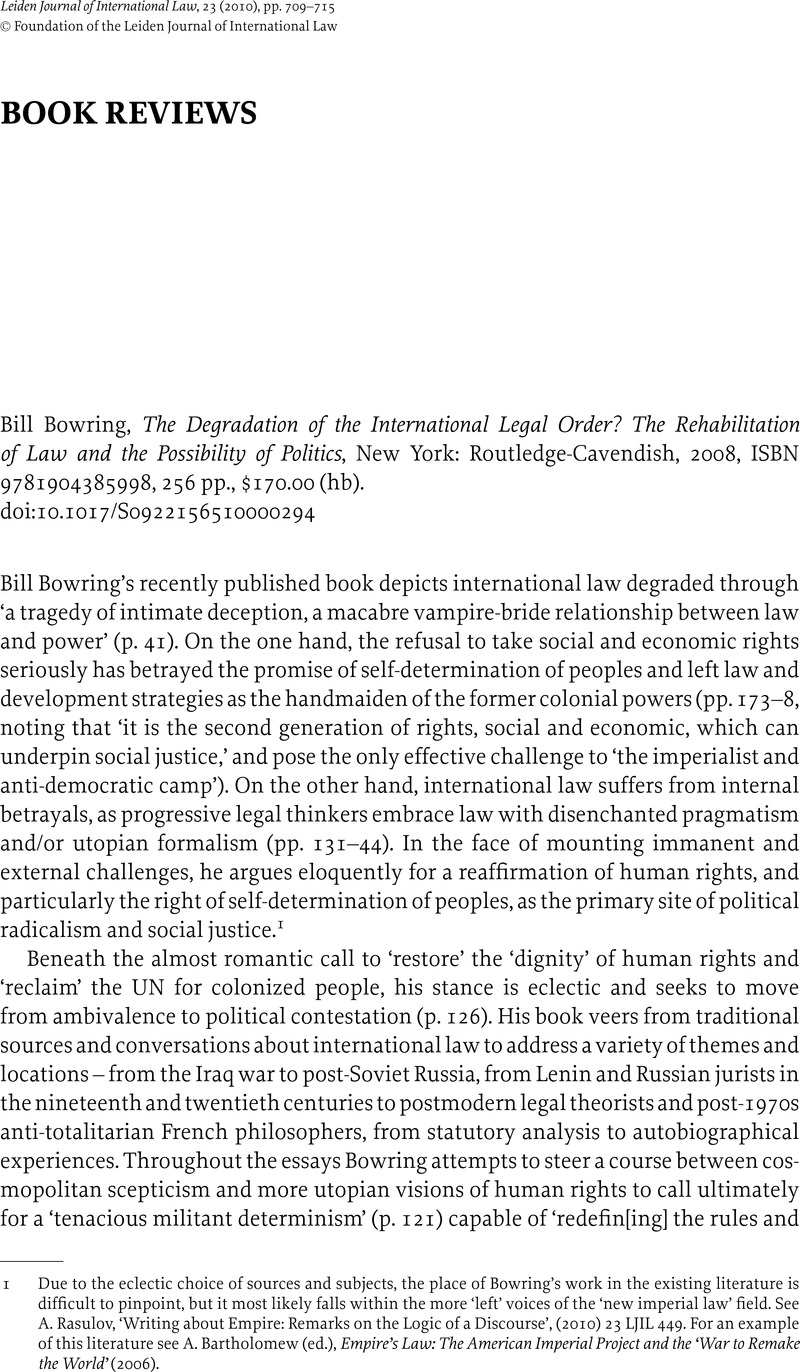No CrossRef data available.
Published online by Cambridge University Press: 30 July 2010

1 Due to the eclectic choice of sources and subjects, the place of Bowring's work in the existing literature is difficult to pinpoint, but it most likely falls within the more ‘left’ voices of the ‘new imperial law’ field. See A. Rasulov, ‘Writing about Empire: Remarks on the Logic of a Discourse’, (2010) 23 LJIL 449. For an example of this literature see A. Bartholomew (ed.), Empire's Law: The American Imperial Project and the ‘War to Remake the World’ (2006).
2 Following the philosophical opening Bowring has established here concerning political theology, see A. Badiou, Saint Paul: The Foundation of Universalism, trans. R. Brassier (2003); see also H. de Vries and L. Sullivan (eds.), Political Theologies: Public Religions in a Post-secular World (2006); S. Žižek, On Belief (2001).
3 D. Kennedy, The Dark Sides of Virtue: Reassessing International Humanitarianism (2004); see also M. Koskenniemi, From Apology to Utopia: The Structure of International Legal Argument (1989).
4 C. Douzinas, The End of Human Rights: Critical Legal Thought at the Turn of the Century (2000), 226–7 (drawing on Jacques Lacan).
5 Authors have begun to engage with various aspects of Soviet jurisprudence in relation to international law, such as Rob Knox, Boris Mamlyuk, China Miéville, Scott Newton, Akbar Rasulov, and William B. Simons.